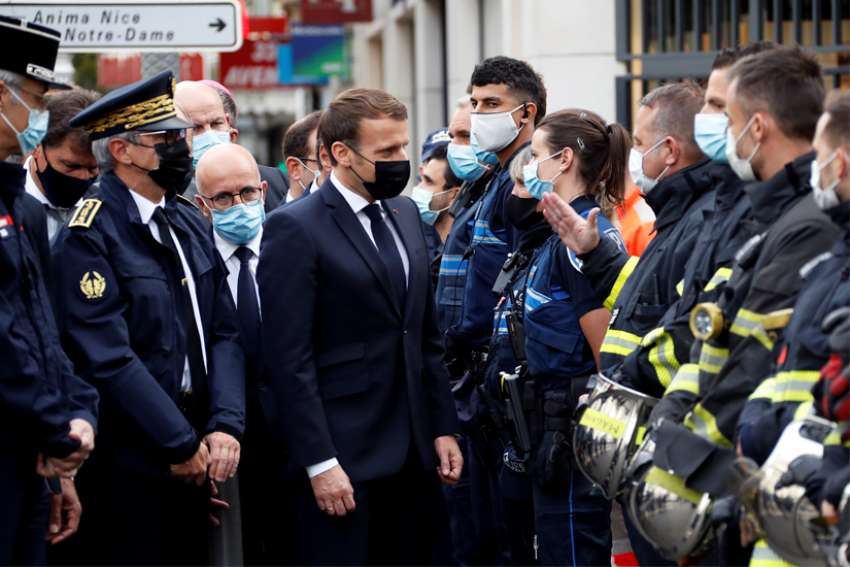It was nerve-wracking in mid-October when Samuel Paty was killed by a knife-wielding attacker in a Paris suburb as vengeance for showing cartoons of the Prophet Mohammed. My son, too, is a historian who both teaches at a private Catholic lycée and lectures at a university in France.
Even the minor consolation of distance was demolished on Oct. 29 when three worshippers were murdered at the Basilica-of-Notre-Dame de Nice, an easy drive along the coast from where our son lives. Prayers for the slaughtered innocents melded with sombre conversations about his physical, and emotional, security. There was a distinct sense of déjà vu all over again. He lived in Paris during the 2015 Bataclan massacre. He narrowly missed walking past the offices of Charlie Hebdo at the moment Islamist gunmen opened fire that same year. Now, just when things seemed quasi-safe again….
While he expressed angry bafflement at the bloodthirstiness of the religious ideologues who carried out (and counselled) the unconscionable attacks, the vehemence of his dripping disdain for the French government’s response was quite startling. No, unlike vigilante voices now rising, he doesn’t want Muslims in France rounded up and sent out on barges into the sea. Au contraire, he wants the State to account for its complicity by reducing the problem to a fatuous triumphalism for free speech over respectful regard for religious minorities.
Where he lives, for example, certain civic bright lights responded by projecting images of the catalytic anti-Muslim cartoons on the exterior walls of public buildings. Hardly a gesture of rapprochement for moderate Muslims who, according to a recent report, are increasingly sliding toward fundamentalism. Yet, as my son notes, it plays perfectly into the Macron government’s tough, if hollow, talk about cracking down on Islamic separatism and obliging Muslims to accept “Republican values” of State secularism.
Century-old laws enforcing laicité are, Macron insisted, “the glue of a united France” that is a bulwark against the “conscious, theorized, politico-religious project” of Islamism. Yet the French president’s own conscious political provocations are undermined by the wisdom of a diocesan priest in Nice, Fr. Stéphane Drillon. Known on YouTube as “Le Curé enrage” — the enraged priest — Drillon pinpoints secular assaults on the country’s Catholic faith, identity and practice as causing French incapacity to accommodate the Muslim minority.
Drillon said history shows a robustly Catholic France offers a pluralism where Christianity and Islam can live side by side. It is the desiccation of spiritual life that leaves fragmentation, isolation and fantasist violence, he said.
“What do French secularism and nihilism have to propose to a young Muslim today, apart from abortion, the Pill, drugs, castrating feminism, games, hobbies and a lockdown where people are paid for not working?” Drillion is quoted. “There is nothing here that makes a young Muslim willing to become part of a national narrative or respect the country that welcomes them.”
Michel Houellebecq has been writing a variation on the argument for decades, and been denounced as an Islamophobe as well as a racist, depressive, sexist, pornographic vulgarian. Yet in his early novel The Elementary Particles, he was already warning about “the suicide of the West,” not as a clash of civilization with Islam but as the emptying of spiritual love that provides life’s purpose.
Essayist James E. Person Jr. nails Houellebecq’s prophetic power: “(His) characters sense that the essence of their world is empty, and they long with little hope for something — anything — to be revealed to give their lives a sense of meaning. … These characters fill their time counting the minutes until the days of their lives are utterly spent.”
This is the glue that will hold France — hold the West — together? No. At best it’s a rope on which our minds can focus until morning.
(Stockland is publisher of Convivium.ca and a senior fellow with Cardus.)


